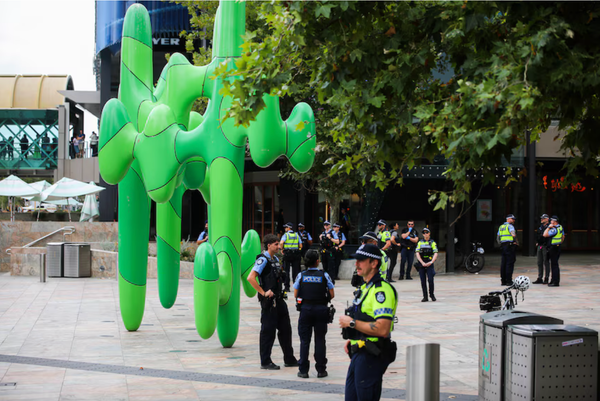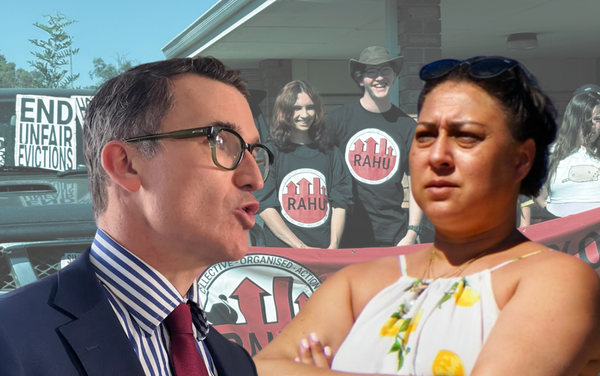How to Wipe Woodside
A surprise victory against fossil fuel sponsorship in Victoria contains lessons for the west.

In WA, I need hardly remind readers of this newsletter, it often looks like Woodside owns the state.
Their corporate headquarters tower over WA Parliament, in case the politicians ever thought to forget it (in fact they seem keen to commemorate it forever). You’ve got the Woodside Nippers kids’ surf lifesaving program, their logo on the Fremantle Dockers jersey and their sponsorship of most major cultural institutions - the WA Museum, the WA Symphony Orchestra, the WA Ballet, the WA Youth Orchestra. Woodside pays for air conditioning in WA public schools.
In 2021, the Perth Fringe Festival softly removed Woodside’s name from their main venue and last year the Orchestra did similarly, but the association lingered. The value to Australia’s largest gas exporter of these sponsorship arrangements - sportswashing, artswashing, greenwashing - is well understood.
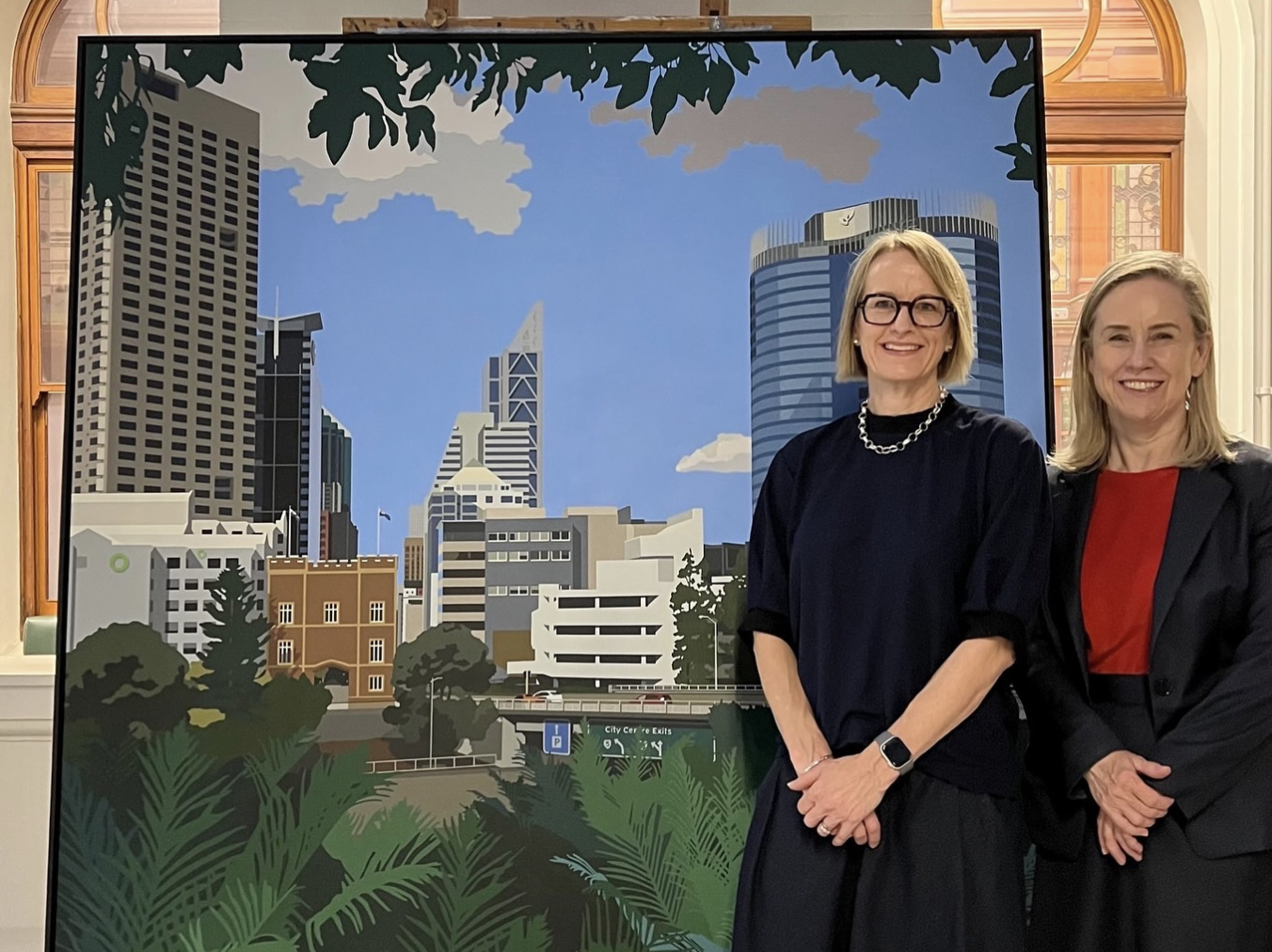
But last week, almost out of nowhere, one of their most lucrative partnerships was ended - this one with Monash University, worth $43 million over six years, and including the naming rights to a popular and prominent faculty building on campus, known since 2019 as the ‘Woodside Building for Technology and Design’.
Well, that will revert back to plain old Building 94 next year. It’s a big win for a grassroots campaign that only kicked off two years ago, when Monash student Carina Griffin began plastering campus with posters aimed at anyone similarly frustrated about the university covering for Woodside.
It’s led to acclaim in the federal Senate, from the NTEU and from Monash students themselves. And given all the efforts to remove Woodside’s name from cultural institutions in the west, it is worth reflecting on what the celebrating students and staff in Melbourne may be able to tell us about how to effectively combat the insidious and effective social license that fossil fuel producers derive from these arrangements.
It’s clear the campaigners themselves are pretty surprised that they have managed to pull this off so suddenly. Following the initial flush of QR codes dotted around campus directing people to join a group chat that became campaign group Stop Woodside Monash, their first visible manifestation was in March last year when Griffin confronted Woodside promoters at a campus careers day.
“As a company, do you really think it’s appropriate that you’re positioning yourself as a responsible career path for students?” she asked, calmly but firmly, as the reps rolled up their banner and beat a hasty retreat. The campaign says they’re not aware of Woodside appearing in person on campus again since then.
This year, activists staged a snap action in response to the initial approval of Woodside’s North West Shelf extension by Murray Watt in May, and then organised a festival-style “Fossil Free Forum Fest” in August in partnership with other groups. Stop Woodside Monash also submitted to a Senate Inquiry into university governance in March and made some FOI requests, and also liaised with climate journalist Royce Kurmelovs on a couple of investigative pieces that ran in The Guardian and Crikey some months ago. And then, on Tuesday last week, they got the phone call to say the university was cutting ties with Woodside.
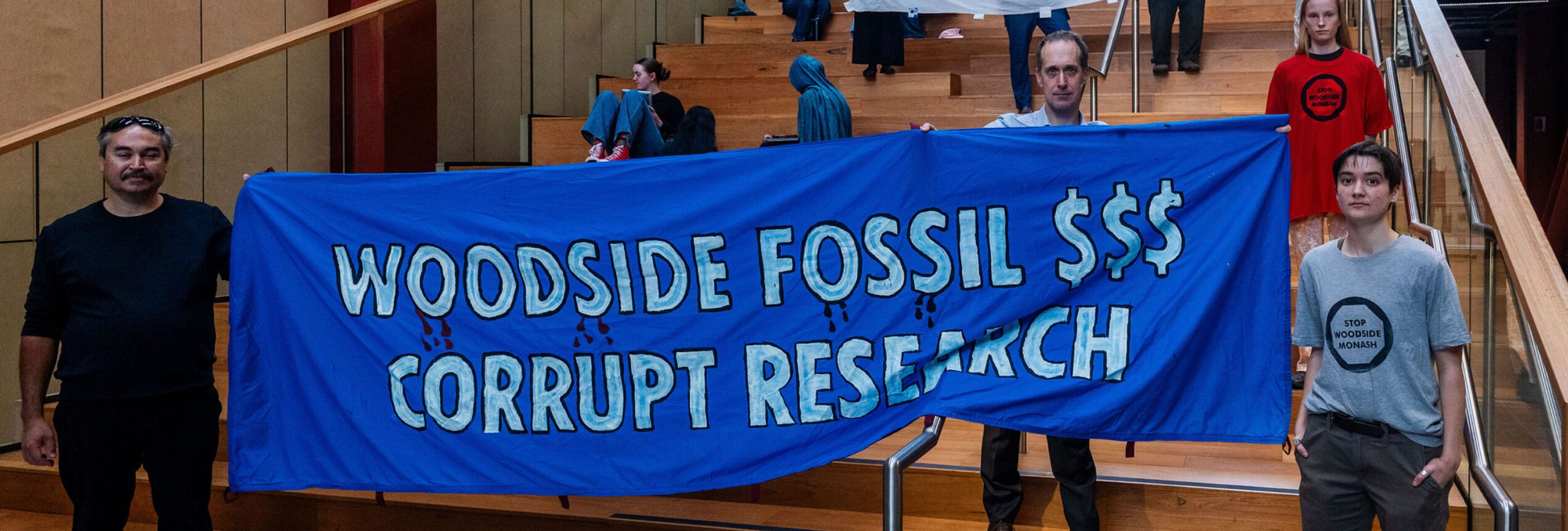
At a hearing of the Senate Inquiry last week, Monash Vice Chancellor Sharon Pickering confirmed that “the current partnership framework agreement is due to end at the end of this year.”
“What we have done is we have released Woodside from the naming deed in relation to the philanthropic arrangement that was entered into with them,” she went on, as though the university had done the fossil fuel company a favour.
Far from relieving Woodside from a burden, of course, the university has been forced to sever a significant source of social license for the company. As Thomas White, a Monash undergraduate student and Stop Woodside Monash organiser noted to me, most people only knew Woodside as the name of a well-loved building on campus - not as one of the biggest fossil fuel companies in the country.
“Most people don't know what Woodside is,” he told me. “That it is entirely allowing them to greenwash their name.”
The physical reality of that phenomenon, the tangible symbol of the relationship, also proved galvanising for the Stop Woodside campaign, however. “I think that that was particularly emotionally hard for a lot of the students who got involved, White said. “It really pissed me off.”
“Having that physical monument to it is also really incredibly helpful.”
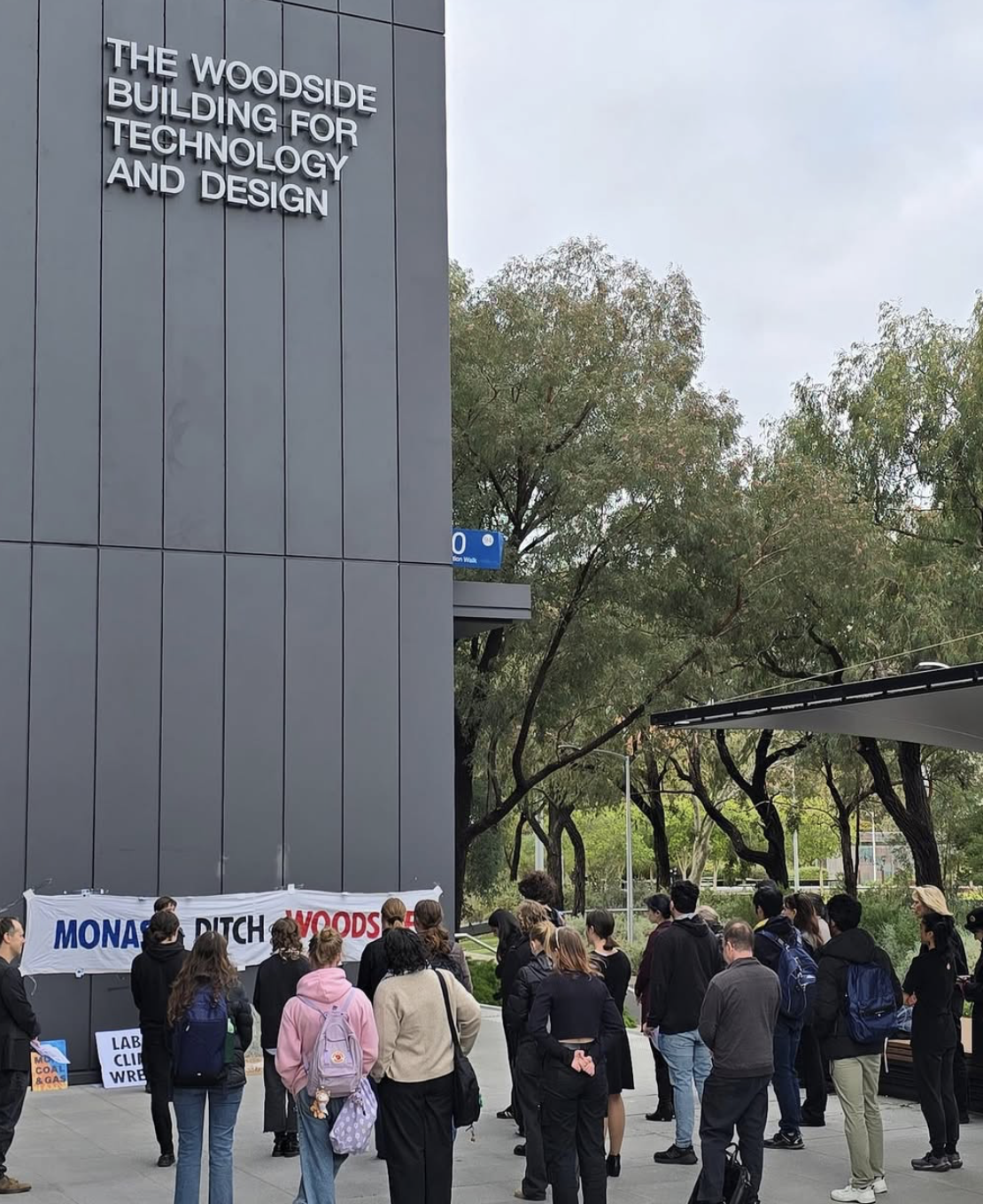
More broadly, the existence of a specific target is one of two key factors that White identifies as crucial to the success of their campaign. “It's great to have a movement that had a tangible goal and we're able to say, "OK, this is the thing that we need to achieve in order to win,’” he says.
“And we've achieved it. So, that's really, really brilliant.”
The other significant lesson White identified was that a successful campaign doesn’t look like it’s run by activists.
“You can't have a movement grounded in just like the archetypical activist type. It needs to have genuine community representation.”
They made a conscious decision to reflect this in the tone of their campaign, often abjuring serious, solemn messaging they felt would alienate a lot of students in favour of more irreverent comms that didn’t take themselves too seriously.
“We were like 'no, we can make fun of this.’ It is a bit silly and ridiculous that this enormous fossil fuel corporation is all over the university,” White reflects.
“I think it made us more approachable.”
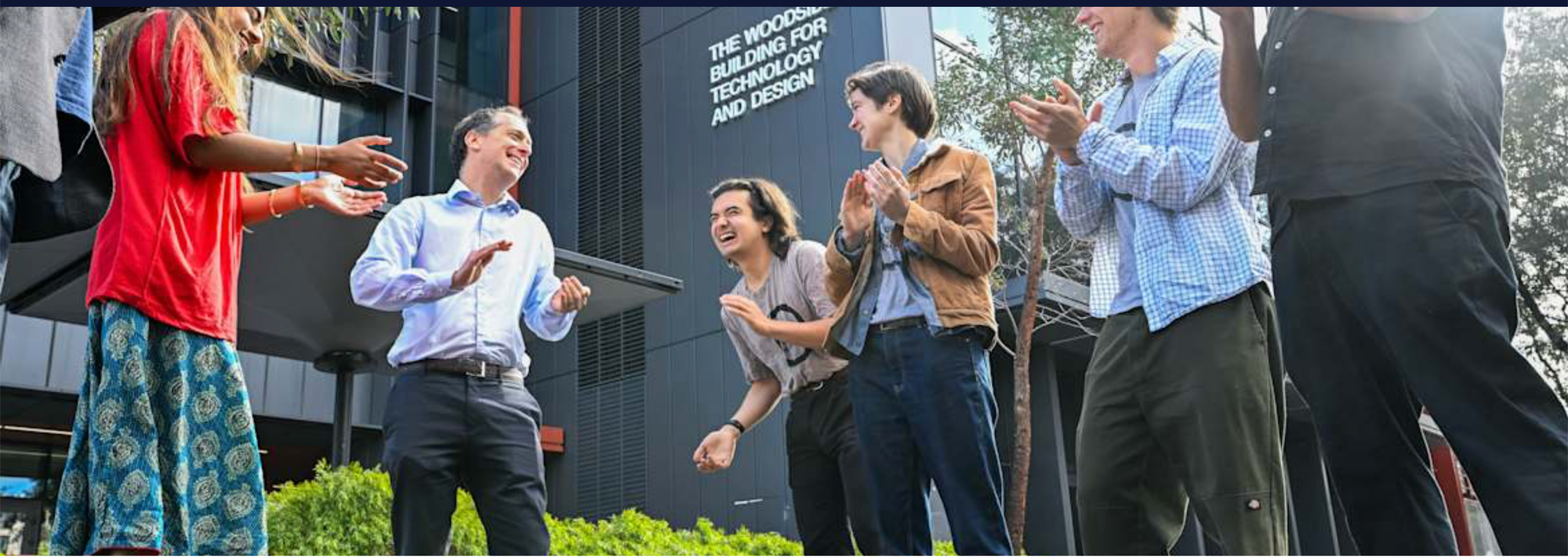
The campaign produced memes and viral reels for Instagram, but they also ran in person events that White describes as “unconventional”.
They staged a mock funeral (both for future generations and extinct species but also for the school’s credibility?) at the news of the North West Shelf approval. Their ‘Forum Fest’ in August featured a speech from the CEO of the Climate Council but also had live bands outside in the sun.
Asked to choose between online and in person, White picks the impact of IRL. “A lot of campaigns do the social media stuff but I don't think you can generate that buzz and energy behind something without in person events.”
He qualifies that by noting that for the core campaign crew, social media was key for engagement. “It was incredible to have the 500 people that came to the forum festival,” he says. “But without the social media campaign, I don't know if we would have had the 20 or 30 volunteers [to organise it].”
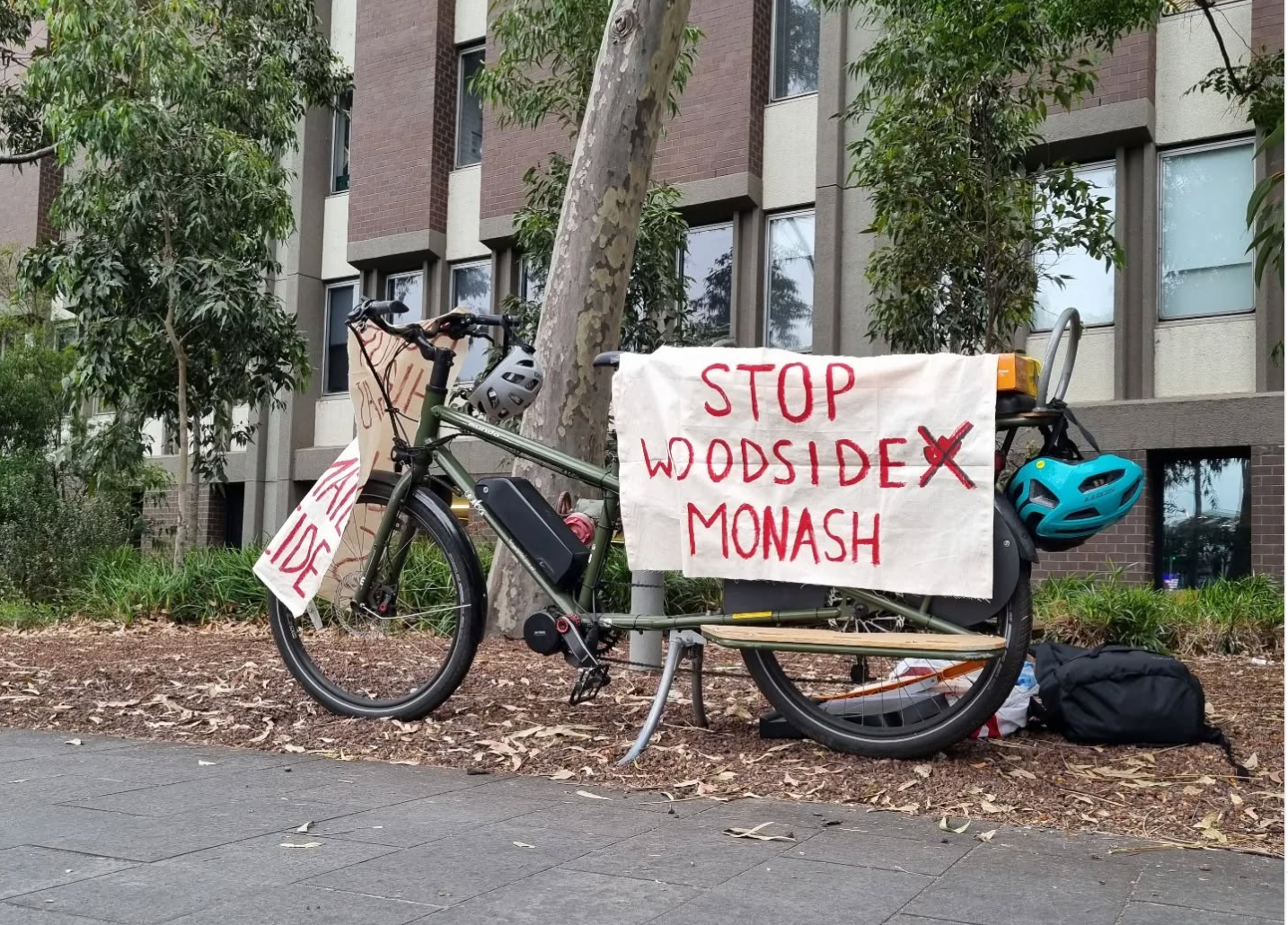
The festival was also a key organising moment to advocate directly to the authorities, by subscribing hundreds of people to submit to a university environmental and social governance review. “I don't know if we would have been able to get anywhere near as many people submit if that wasn't in person.”
The University implicitly acknowledged the relevance of this in their statement to The Last Place on Earth. “Managing our ESG commitment, meeting the expectations of our community, our research collaborations and our primary commitment to academic freedom, is complex.”
Monash University didn’t answer specific questions about why they had chosen to part ways with Woodside, although they did note that the Engineering faculty is “well advanced in discussions about future areas of research collaboration with Woodside.”
For their part, believe it or not, Woodside didn’t respond to my requests for comment.
The students recognise that there are differences between their experience in Victoria and the fossil fuel heartland of WA, including the fact that Victorian Labor doesn’t have the same degree of dependence on Woodside.
Institutions like the WA Museum are under significant pressure from the government to take the money offered by companies like Woodside, on the clear understanding that the state won’t step in if they don’t. In WA, where fossil fuel sponsorship is the norm, sports and culture bodies give each other cover to maintain the arrangement, immune to needling inquiries from national media, in spite of the incredulity of some east coast journos that these partnerships continue despite public exposure.
As White told me, for the Stop Woodside Monash campaign, “the fact that this is isolated does make it kind of slightly easier”.
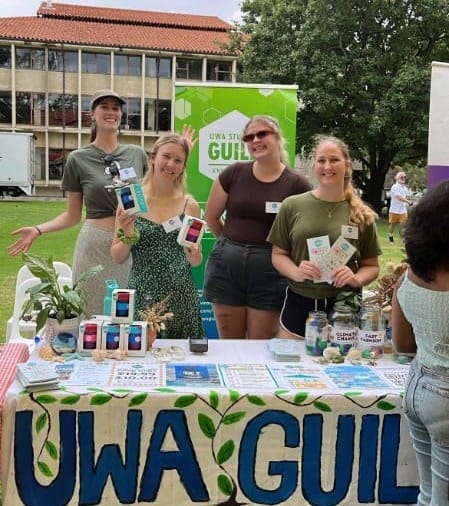
Nonetheless, what they achieved with minimal resources in a short space of time is significant. It puts Woodside on notice, and it should have similar effect on anyone still looking to dislodge their influence from within WA’s cultural fabric.
Woodside is also a prominent sponsor of the University of Western Australia, which has seen some opposition from students there. Recent UWA graduate Sophie Burrows, who was Treasurer of the Environment Department this year, says the campaign has been quiet there for the past couple of years but is starting to pick up again. “The Monash achievement should hopefully boost the momentum at UWA,” she told me yesterday.
“I definitely think that UWA students should be inspired from the Monash/Woodside split to put way more pressure on the university to divest from fossil fuels more broadly,” she said. “They should feel able to call the uni out on these things and prevent them from working with Woodside more in the future.”
The celebrations from the Monash students and staff this week should be sufficient incentive to have another crack.


